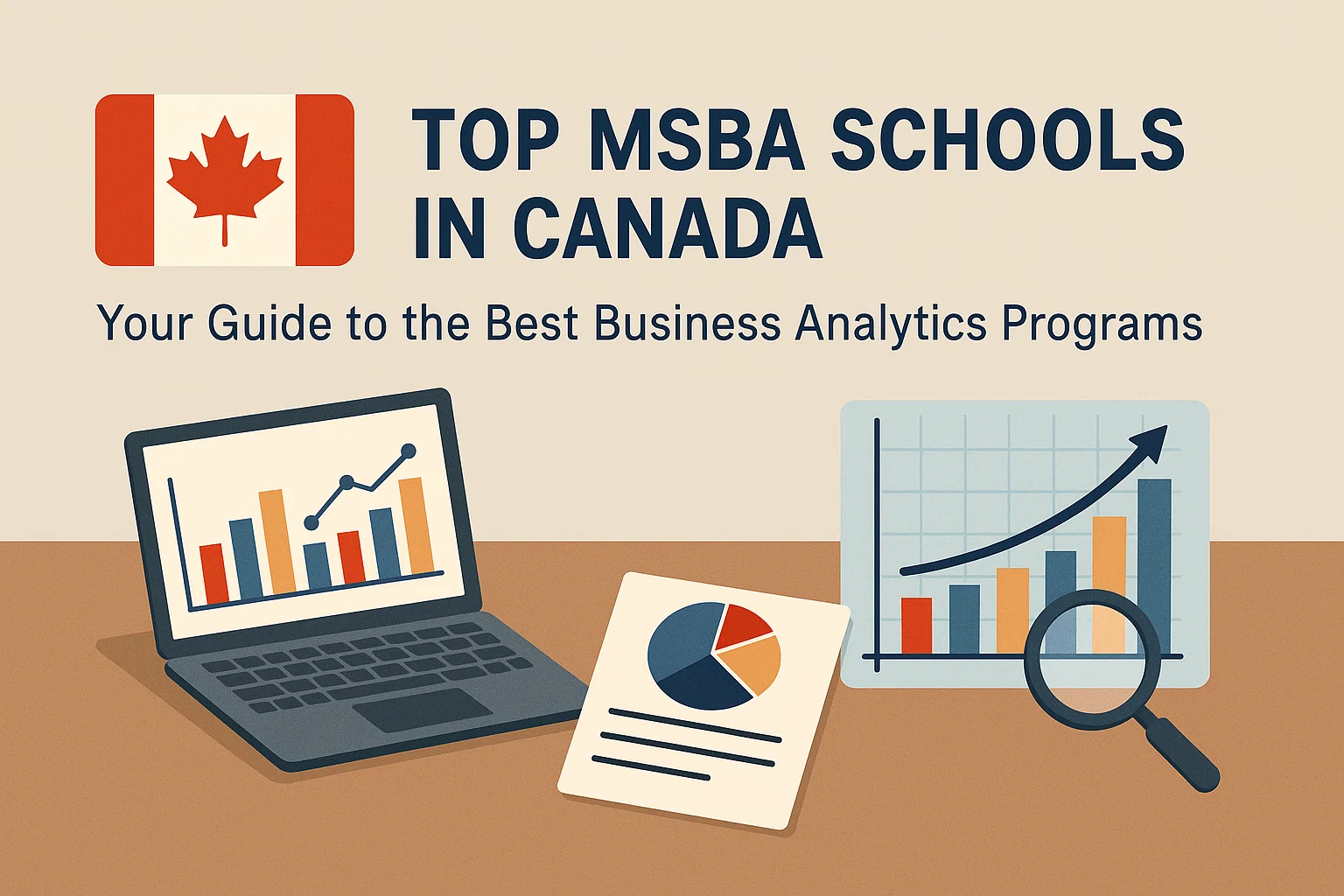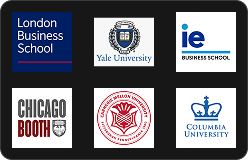
Top MSBA Schools in Canada: Your Guide to the Best Business Analytics Programs
Introduction: Why MSBA in Canada Is TrendingThinking about doing a Master’s in Business Analytics (MSBA)? Canada is one…
Table of Contents

Thinking about mixing your engineering background with business skills? A Master in Engineering Management, or MEM, might be the perfect next step. And if you're wondering where to study it, you're not alone—MEM in Canada is becoming one of the most popular choices for students all over the world.
Why? Because this program teaches you how to lead teams, manage big projects, and understand business—without giving up your technical background. It’s like an MBA, but made for engineers.
Whether you want to work in tech, manufacturing, or consulting, a MEM course in Canada helps you build a mix of technical and management skills. Plus, you get the chance to live and work in some of Canada’s top cities, like Toronto, Vancouver, or Montreal.
In this blog, we’ll explore the best MEM programs, how to choose the right university, what it costs, and what kind of jobs you can get after you graduate.
Canada is seeing a high demand for engineers who can do more than just technical work. Today’s companies want professionals who can lead teams, handle business decisions, and manage complex projects. That’s exactly what a Master of Engineering Management (MEM) prepares you for.
Often called the “MBA for engineers,” MEM in Canada helps you gain business skills while staying connected to your technical roots.
| Feature | Why It Matters |
|---|---|
| Strong Job Market | Many openings in tech, consulting, and more |
| Industry-Aligned Curriculum | Programs focus on real-world applications |
| No GRE Needed | Easier admissions process |
| 1–2 Year Program Duration | Saves time and money |
| PGWP Eligibility | Up to 3 years to work after graduation |
| PR Opportunities | Helps build a long-term future in Canada |
So if you want a mix of engineering and business skills with real job prospects, a MEM course in Canada is a smart choice.
Canada is one of the best places in the world for international students. It’s safe, student-friendly, and offers a great education system. If you're thinking about studying MEM in Canada, you're making a smart move.
Here’s why Canada stands out for students looking to do a Master of Engineering Management in Canada.
| Factor | Why It Matters |
|---|---|
| PGWP (Post-Graduation Work Permit) | Work in Canada for up to 3 years |
| PR Options | Apply for PR through Express Entry or PNPs |
| Industry Partnerships | Co-ops and internships with top employers |
| Affordable Living and Tuition | Lower cost than other popular study destinations |
| High Quality of Life | Clean, safe, and multicultural cities |
| No GRE for Most Programs | Simple and student-friendly admissions |
So if you're aiming to study engineering management in Canada and want strong academics with real career growth, Canada has everything you need.

Not every MEM course in Canada is the same. Some focus more on engineering and tech, while others lean more into leadership and business. Choosing the right program means looking at what matters most to you—your interests, career goals, and learning style.
Here’s what you should look at when picking the right MEM in Canada.
| Factor | What to Look For |
|---|---|
| Curriculum Style | More technical or more business-focused |
| Co-op/Internships | Are real work placements part of the program? |
| Location | Near tech hubs like Toronto, Vancouver, or Waterloo |
| Program Length | 1 year (fast-track) vs. 2 years (in-depth) |
| GRE Requirement | Usually not needed, but check your target school |
| Class Size and Diversity | Smaller classes offer more one-on-one learning |
So before applying, ask yourself: What do I really want to learn? Where do I want to work afterward? The right engineering management program in Canada will help you reach those goals.
Picking the right university can shape your future career. That’s why it’s important to look at Canada’s leading schools that offer the best MEM programs. These universities are known for their strong academics, hands-on learning, and industry connections.
Here’s a list of top schools offering a Master of Engineering Management in Canada (or similar programs). Each one has its own strengths—some focus more on research, while others offer co-ops or business-heavy courses.
| University | Program Name | Duration | City | Co-op Option | GRE Required |
|---|---|---|---|---|---|
| University of Toronto | MEng in Engineering Management | 2 years | Toronto | No | No |
| University of British Columbia | MEL in Engineering Leadership | 1 year | Vancouver | No | No |
| McGill University | MEng in Engineering Management | 1.5 years | Montreal | No | No |
| University of Waterloo | MMSc in Engineering Management | 2 years | Waterloo | Yes | No |
| Concordia University | MEng in Engineering Management | 2 years | Montreal | No | No |
| University of Ottawa | MEng in Engineering Management | 2 years | Ottawa | No | No |
| Dalhousie University | MEng in Internetworking | 2 years | Halifax | No | No |
| University of Alberta | MEng in Engineering Management | 2 years | Edmonton | No | No |
| Western University | MESc in Engineering Leadership & Innovation | 2 years | London | No | No |
| University of Regina | MBA in Engineering Management | 2 years | Regina | No | No |
Note: While all of these programs fall under the umbrella of MEM in Canada, some may have slightly different names or structures. Always visit the university’s official website for the latest information.
These are considered among the best colleges in Canada for engineering students looking to step into leadership roles.
Applying to a Master of Engineering Management in Canada is usually a smooth process—especially compared to the U.S. Since most Canadian universities don’t require the GRE, the focus is more on your academics, work experience, and motivation.
If you're planning to apply to a MEM course in Canada, here’s what you’ll typically need.
| Accepted Fields of Study | Notes |
|---|---|
| Mechanical, Civil, Electrical Engineering | Preferred by most schools |
| Computer Science or IT | Widely accepted for MEM Canada programs |
| Industrial Engineering, Physics, Math | Also accepted |
| Business or Economics (with tech skills) | May be accepted in some programs |
| Test | Minimum Score Range |
|---|---|
| IELTS | 6.5 to 7.0 overall |
| TOEFL iBT | 88 to 100 |
Some universities may accept Duolingo or waive this if your past education was in English.
Tip: A strong SOP can make a big difference if your GPA is average.

One of the best parts about choosing a MEM course in Canada is that it’s more affordable than similar programs in the U.S. or U.K. At the same time, it offers strong career outcomes. So, you get a good return on what you spend.
Let’s break it down.
The cost of a Master of Engineering Management in Canada depends on the university. Here's a general idea:
| University Tier | Estimated Total Tuition (CAD) |
|---|---|
| Top-ranked (Toronto, UBC) | $35,000 – $45,000 |
| Mid-range (Ottawa, Concordia) | $25,000 – $35,000 |
| Affordable (Dalhousie, Regina) | $18,000 – $25,000 |
These are full program costs, not per year. Most MEM programs last 1–2 years.
Living costs can vary based on where you study. Here's an average monthly and yearly breakdown:
| City | Monthly Cost (CAD) | Yearly Cost (Approx.) |
|---|---|---|
| Toronto | $1,500 – $2,000 | $18,000 – $24,000 |
| Vancouver | $1,400 – $1,900 | $17,000 – $23,000 |
| Montreal | $1,200 – $1,600 | $14,000 – $19,000 |
| Halifax, Regina | $1,000 – $1,400 | $12,000 – $17,000 |
This includes rent, groceries, transport, and other essentials. You can lower costs by sharing accommodation or living in smaller cities.
To make studying more affordable, many MEM Canada universities offer:
Pro Tip: Apply early to get the best chances for scholarships and co-op placements.
Graduates of engineering management programs in Canada often land well-paying jobs across tech, consulting, and manufacturing.
| Career Stage | Salary Range (CAD) |
|---|---|
| Starting Salary | $65,000 – $85,000/year |
| 3–5 Years Experience | $90,000 – $110,000/year |
Students who complete co-ops or internships during their program tend to earn more and get jobs faster.
So, while the upfront cost of doing a masters in engineering management Canada program might seem high, the job opportunities and salaries make it a great investment.
Graduating with a Master of Engineering Management in Canada opens the door to exciting jobs that mix tech and leadership. Employers love hiring MEM grads because they bring both technical know-how and the ability to manage people, projects, and business goals.
Whether you want to lead a product team, manage operations, or work in consulting, a MEM course in Canada gives you the skills to succeed.
Here are some of the roles you might land after completing a MEM degree in Canada:
These roles are offered across industries—from tech and healthcare to aerospace and energy.
| Sector | What You Might Work On |
|---|---|
| Technology & Software | Managing product teams or digital projects |
| Manufacturing & Automation | Improving production systems and workflows |
| Energy & Utilities | Leading engineering operations or planning |
| Construction & Infrastructure | Overseeing large-scale project delivery |
| Aerospace & Transportation | Managing systems, safety, and innovation |
| Healthcare Tech | Engineering and tech roles in hospitals or labs |
Here are some major companies where MEM in Canada graduates often find work:
These companies value the unique skill set that MEM grads bring—technical depth plus leadership potential.
One of the biggest benefits of studying in Canada is the PGWP. After finishing your MEM program, you can:
This makes MEM programs in Canada not just great for learning, but also for building a long-term career.
Studying a Master of Engineering Management in Canada doesn’t have to break the bank. Many Canadian universities and government programs offer scholarships that can help reduce your tuition fees and living costs.
Whether you’re applying to the University of Ottawa MEM, University of Alberta MEM, or any other top program, it’s worth checking the available financial aid options.
| Scholarship Name | Amount (CAD) | Eligibility/Notes |
|---|---|---|
| University Entrance Awards | $2,000 – $10,000 | Varies by university and GPA |
| Ontario Graduate Scholarship (OGS) | Up to $15,000 | For students in Ontario universities |
| BC Graduate Scholarships | Varies | For MEM students in British Columbia |
| Canada Graduate Scholarships (CGS-M) | $17,500 (1 year) | Research-focused MEM programs |
| Mitacs Globalink Research Award | $6,000 | For research or capstone project work |
These scholarships aren’t just for saving money. Winning one can also strengthen your resume and open doors to other opportunities.

Yes, you can absolutely apply for a MEM course in Canada without taking the GRE. That’s one of the biggest reasons students from around the world prefer doing their Master of Engineering Management in Canada.
Most Canadian universities focus more on your academic background, projects, and professional experience—not standardized test scores.
| University | GRE Requirement |
|---|---|
| University of Toronto | Not required |
| University of Waterloo | Not required |
| Concordia University | Not required |
| University of Ottawa | Not required |
| University of British Columbia | Not required |
| McGill University | Not required |
| Dalhousie University | Not required |
| University of Alberta | Not required |
Tip: Even if a school doesn’t require GRE, submitting scores may help if your GPA is low or your university is lesser known.
When there’s no GRE, universities focus on:
So if you’re worried about taking the GRE, don’t stress. Most of the top MEM programs in Canada don’t require it, and there are many other ways to show you’re a great fit.
Getting into one of the top MEM programs in Canada can be competitive, especially if you're aiming for schools with high rankings or limited seats. But don’t worry—there are simple ways to make your application stand out.
Here’s how to build a strong profile for your Master of Engineering Management in Canada.
MEM is all about engineering plus management. So, universities love to see examples where you:
Even student clubs, hackathons, or freelance projects count—just explain your role clearly.
If your overall GPA isn’t super high, highlight where you did well:
Tip: Many engineering management courses in Canada value improvement, not just perfect grades.
Your Statement of Purpose is your story. It should explain:
Make sure your SOP connects your past experience with your future plans.
Instead of saying “Worked on a team project,” try:
Numbers make your work real and impressive.
Pick people who:
A generic letter from a famous person won’t help as much as a strong one from someone who truly knows your work.
A Master of Engineering Management in Canada is more than just a degree—it’s a launchpad for engineers who want to grow into leadership, product, or operations roles without stepping away from their technical roots.
Whether you choose the University of Ottawa MEM, University of Waterloo MEM, or any other top program, you’ll gain both technical and business skills that are in high demand across industries.
Here’s why thousands of students are choosing MEM Canada programs every year:
From affordable tuition to world-class universities and a friendly, multicultural environment, Canada offers everything you need to succeed in your career and build a life abroad.
So if you're ready to take the next step in your journey, the best MEM programs in Canada are waiting for you.
